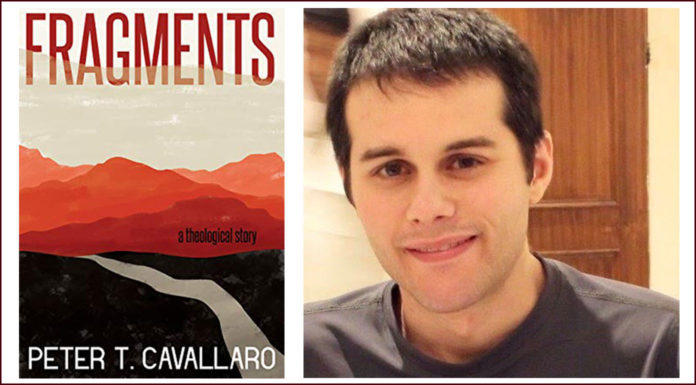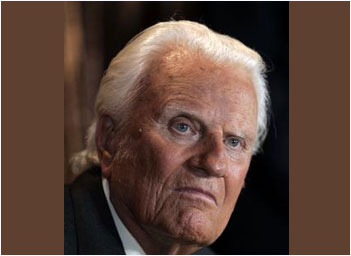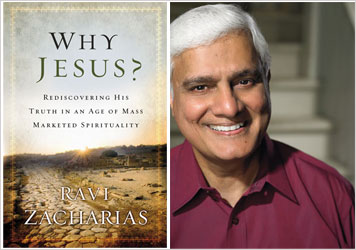Imagine a world in which gods did not conceal their existence from humankind but instead walked the earth until they were hunted to near-extinction. Only two remain, and here enters our central character, a celebrity of sorts, known only as the god-slayer. But as a self-described “swashbuckling philosopher,” the god-slayer is not out for blood so much as knowledge. And then, of course, there is that dream. . . . Fragments takes its reader on a journey of questions, answers, and more questions….Recommended just as much for those who wish to strengthen their faith as those who seek to challenge it, Fragments is a one-of-a-kind work of Christian apologetics for the 21st century. (Published with the author’s consent.) Link to buy the book at the end of the page.
Perhaps I misjudged you, god-slayer. You are clearly more a philosopher than a swashbuckler.
I would prefer to say that I’m a swashbuckling philosopher (or a philosophizing swashbuckler, depending on the day).
But come now, I am not a needlessly cruel god-killer!Whatever else you’ve heard about me, whatever else I may be, I’m surely not that. Embittered toward your race, yes, but also just and not needlessly cruel. So listen here. Suppose I extended to you the same option as I did all those before you: demonstrate to me convincingly, if you can, why suffering needed to be part of your grand design; explain how such a pathogen could possibly be compatible with your alleged goodness, how it could possibly be consistent with your professed love and concern for my race.I’m not even asking you to remove this suffering. I already know that would be a futile request. No, you’ve caught me in a magnanimous mood: all I’m asking is that you explain this mystery to my satisfaction—make me believe—and I will spare your life. I’m just looking to understand. Please. Why can’t any of you make me understand?
Others may have tried. Romulus surely will. But if it is reasons and reasoning that you seek, those are not objects I am prepared to give you.
Then you force my hand, friend.
There is, I suppose, one charge that I hesitate to let stand; one allegation alone I feel compelled to rebut. After that,you may kill me if you will, or whatever you will. It is up to you.
Let’s hear it then. I’ll take whatever I can get.
How, you wonder, can you assure yourself of your makers’ love for you? How can you trust in our underlying benevolence? You are tormented by this question. But you need look no further than a flower: for how could one who devises so superfluous a trinket possibly be motivated by anything other than gaiety and affection and goodness? There is found your certainty.
When your eyes behold the tightly packaged petals of a rose-head, hugged as they are by some dew drops of the daybreak, you will surely know then that you are loved.
So too when you see a blazed sea of tulips, each boasting its own hue: when you marvel at the beauty of a single specimen and then, lifting up your gaze and staring into the mass of them, detect amalgamated artistry in the many, such that from the many comes one—when you behold and contemplate this spectacle, you will know surely that you are loved.
No one but a benign creator would have thought to stitch the world in colors; none but a gentle artist would have ever doused the earth with the sweet fragrances of the wild.
When you stand inside the depths of the summer forest, totally engulfed in the erupting life-force—inside a woods conquered by the chorus of the cicada and splashed top to bottom with glowing green—when you find yourself lost beneath this lush canopy and swarmed by gnarled oaks raising up their arms to the firmament in praise of existence, you will know then that you are loved.
As well, when you stand atop some fog-flecked mountain at dusk, gazing out at the splendors of the toy world below—when from this splendid pinnacle your mind becomes captivated by the mysteries of blue-clad islets dotting the seascape or your heart unbolted by the silhouettes of lonesome vessels chasing the horizon’s vanishing glow—you will know then, if nothing else, that you are encountering the traces of a deep love.
Likewise, when you stare into the well of a fruited valley offering up its treasure to its cultivators—when from afar you observe that ordered bramble of green, a nursery for vital beverages, running parallel beside sprawling squares of amber tattooed with the mark of the plow—surely you will know in that moment that you stand inside the penumbra of love.
And when you behold the gratuitous multiplicity of creatures—striped, speckled, and spotted things; climbers and swimmers; creeping and stampeding things alike—each adapting, each subsisting, each surviving—when you catch sight of all these happy fellows—when the sight of their tiny young triggers in you feelings of tenderness and self-reflection alike, you will know then,above all else, that you are come face to face with ardent love.
Here are your traces, god-slayer. Here are your signs. Here peeks your love.
Small matters! Small matters these are, friend, when you compare them to the ghastliness at hand! Love, you call it? We must have different notions of the term. If you wish to plant your flag on the natural world, be my guest. But I wonder, are you likewise eager to claim credit for nature’s blemishes? For the gross eyesores that abound? Tell me, where is your love on display there? Because, you see, for each poetic that you can conjure, I stand ready to cite a commensurately loathsome facet of this stained domain.
And so I ask again: in the face of mass extinctions; in the face of civilizational poverty; in the face of child-blindness and infant-death, where cowers this love of yours?
Do whatever it is that you will.
You will not engage me on the point?
It is not for me to do so.
So then you unmask yourself as a disappointment like all the rest them. To decompose like all the rest of them.
Can there be any doubting the fact of this love, I ask you,when you have trekked across glistening glaciers, banded and many-colored, soiled and glorious, monuments of frozen chaos—trailed as they are by sapphire fjords, gloomy and radiant?Can there be any doubting it in the countless hidden glens and forgotten streams awaiting friendship in the greenwood? Can this love of ours possibly be doubted when, ever on cue, the night sky unveils its legion of twinkling worlds bearing down on you from above?
To your question of where lives this love of ours, resounding answer is given by the roar of the ocean swell;by the shattering of breakers upon chameleon coasts. It is given too by the wailing of the wilderness; by the croaking of life in the midnight marsh; by the hushed patrol of zephyrs swimming through stalks in the alpine meadow.
The side-profile of a sleeping baby’s face disputes you.
The elegance of a leaf disputes you.
The sparrow announcing to the dawn the grandeur of its garments disputes you.
The mammoth waterfall lurking heard but unseen at the back of a twisting gorge; the billion-grained dune lording over some still and untrodden corner of the earth; the skyline of red-stained fractals contorting themselves into shapes at once familiar and ethereal—each of these loudly disputes you.
And you, indeed, dispute you: as when you felt that unmistakable thrill upon gazing down a forest road strewn with autumn gifts; or when you scaled a cliffside for the sole reward of admiring purple peaks, far off and forbidden—and when, from atop this solitary seat, you had your thoughts stolen away by wonder.
You dispute yourself no less than each time you marvel at the eye of a frog; at a blade of grass; at the fusion of pine woods, bouldered beach, and marbled green ocean, as predominates in your home country.
You dispute yourself whenever you succumb to those seasonal stirrings, primal and pure: the opulence of summer, with its heralding of new adventure and boundless possibilities; the solemn self-reflection lured out by the crisp autumn air; that feeling of cosy, of oneness with all things, provoked by the ferocity of winter; and, in spring, that sacred and rejuvenating certitude that all thin s pass and that all will be well, all will be well, and all is well.
Thus it is not merely from without but also from within that you are self-disputed: in the simple joys that you relish; in those everyday moments of revelation and self-discovery; in those feelings of belonging, of connectedness to the world, which are so central to the human experience; and, not least of all, in the very sanctum of your memories—which, as they are peeled back, disclose the constancy of our affectionate attendance at your side,our persistent joinder to you, in hours of triumph and sorrow alike.
These witnesses—these all, and not I—dispute you.
Memory, did you say? Ha! But memory is one of humanity’s foremost dungeons! Imagine if all the pain, all the loss a person experienced was at least wiped clean by the sunrise of a new day. Think about how much more humane even this milder torment would be! But of course you could not bring yourselves to extend us even this minor mercy. No: you have instead coated us in this foul tar by which past pains remain stuck to us as we journey onward. Do you dare come here and boast your bequest of memory? How do you dare it? That is no glittering affirmation of your love: memory is a slow death.
Memory is no sugar, I quite agree. But there is a comforting sweetness, I think, even to its sting.
Address this! Address this now! Your kind created all things—you admit it; you boast it. Evil pervades your creation—do you deny it? Thus, either negligently or wickedly must you have injected the stuff. In either case, you now stand before the human race with unclean hands. What say you? Answer this indictment immediately, or else be prepared to greet justice well overdue.
Tell me: what is the difference between a person and the image of a person?
I’m sorry, what?
What is the difference between an actual, living human being compared to the mere image of a human being, such as would be depicted in a painting or photograph?
Riddles, now?
The difference is stench.
The difference is pressured bones.
The difference is fatigue. Sweat. A throbbing head. Searing gums. A cramped stomach.
The difference is the need to urinate—and degrading gratification of that need.
The difference is no less than a daily onslaught of sorrowing thoughts arising from the most trifling of concerns.
The difference is the monotony of greeting every morning with aches and every nightfall with anxieties.
The difference is having to contend with the erosive visitation of time; with the constant ebbing and flowing of urges, appetites, and yearnings of every stripe; with the permanent transience of contentedness, both corporeal and cerebral.
The difference is hunger imperishable.
Yes, we humans are consigned to a hard fate. It sure took a while for me to get that out of you, but it sounds like we’re actually in agreement on that point. So what more is there for you to dispute?
A still image—the mere idea of human living—that is, human living captured as a fixed, conceptual slice of time—is more alien to its own subject than is a breathing pig. Cloaked in all of its dimensionless dignity, the still image gives its viewer no clues as to its tenant’s discomfiture; it is a pure fiction.
The summer belle of the photograph, with flowing white gown and understated smile, is perhaps at that very moment under the spell of a migraine or basted in sweat from the evening heat. That proud cadet of the portrait perhaps finds himself in odorous surroundings or conceals behind his spotless uniform a pounding chest pain. That oil painting depicting an idyllic scene from a bygone era might charm its admirer into forgetting that those still-life peasants, pleasantly shown, would have lived their whole lives with cavitied teeth, bad breath, and insects nesting in their hair.
Your point being?
My kin did not fancy ourselves at humanity’s level when, in fact, we were otherwise; we did not, as it were, merely flirt with the photograph. The full spectrum of human travails that you speak of—emotional and physical—was likewise inflicted on us. Encased as we were in the fullness of these carnal trappings—this sweating, fetid armor—can anyone truly doubt the benevolence of our designs? Having subjected ourselves to the fullest range of humankind’s limitations and agonies—(whether natural mortality be a limitation or liberation, we shall have to agree to disagree)—how can it possibly be said that our intentions toward your race, manifested by this solidarity, are anything but good?
You avoid the issue!
You issue a void objection.
Sure—but truly, I do not know what to say.
Do not say what you do not know; and surely you know that you do not say that there is no truth to what I have said.
I’m prepared to acknowledge one thing only from these sorry confessions of yours: the extraordinary breadth of your cowardice. Even in this final hour, you flail away from any shred of responsibility for humanity’s injured condition. Have you absolutely no exonerating logic to offer such that you refuse to address my charges head-on in a serious debate?
My heart burns with a desire to know these answers and hear apology; but I’ve long accepted that my race will never receive a satisfactory explanation for its condition because, quite simply, there isn’t one to be had.
And so I will continue on from today undiminished and with a full heart, your blood dried under my fingernails, and I will put down the last holdout of your race. And thenceforth, the very existence of your kind—your quaint presence in our midst—will be but an unhappy memory for humankind, until finally it becomes lost in the fog of history. Your kind will pass away, and the human race will advance ever-onward, struggling but persevering—nay, triumphing—over the field of traps laid out for us. That is our challenge; it’s how we will win our higher purpose inside your wicked gymnasium.
And so for this slim favor alone—for unwittingly providing this fractional contribution to our betterment, and for this only—am I prepared to thank you. Otherwise, I say this to my esteemed creators: good riddance.
To buy the book, click here.





















